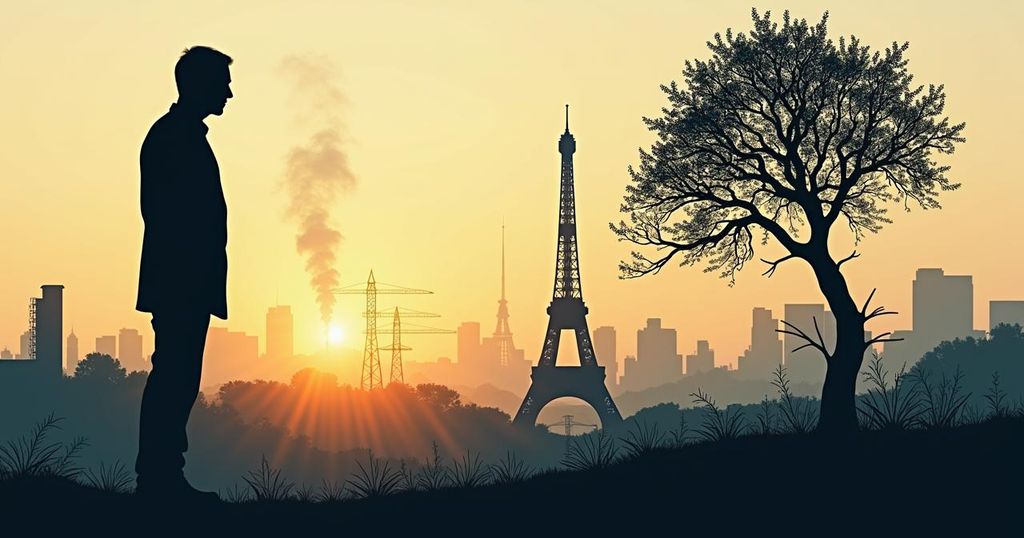Todd Stern’s “Landing the Paris Climate Agreement” chronicles the intricate and often arduous journey to the establishment of the Paris Climate Agreement in 2015. The book provides exhaustive detail on the negotiations, illustrating the challenges and strategies employed to reach a consensus among diverse nations. Through personal anecdotes and insights, Stern captures the personalities and dynamics that shaped this historic agreement, underscoring its significance amidst global climate challenges and political changes, particularly following the United States’ withdrawal.
On December 12, 2015, the signing of the Paris Climate Agreement represented a pivotal moment in global environmental policy, as noted by then-French President François Hollande, who characterized it as a significant date for the planet. Todd Stern, a prominent figure in climate negotiations, recounts this monumental journey in his book, “Landing the Paris Climate Agreement: How It Happened, Why It Matters, and What Comes Next.”The book is primarily a detailed narrative of the behind-the-scenes events leading to the Paris Climate Agreement. It meticulously documents the extensive negotiations and planning undertaken by various stakeholders over the preceding decade. From the participants to the lunch menus, Stern illustrates every nuance of the process. His unique perspective as an American political insider, having worked closely with former Vice President Al Gore and other influential figures, enriches the narrative. It highlights his dedication to fostering cooperation among disparate interests, despite the challenges faced from both businesses and labor unions regarding climate change.Stern’s account also provides a broader context for the Paris Agreement, showing how earlier agreements served as foundational steps toward this momentous occasion. The author delves into specific challenges faced throughout the negotiations, raising questions about strategic timing and the power dynamics among larger and smaller nations. A thorough examination of previous meetings, particularly the disastrous 2009 COP15 summit in Copenhagen with its chaotic discussions, contrasts sharply with the more composed COP16 in Cancun. Even so, the sobering reality of climate negotiations often translates into discussions characterized by intricate details and linguistic precision, as illustrated by exchanges over terms like “taken note of” versus “adopted.”To alleviate the potentially tedious details, Stern injects personality into the narrative by portraying the negotiators and settings, but the heart of the book takes shape as he recounts the rigorous negotiations leading to the Paris Agreement. Notably, he underscores the critical differences in language that could dictate the agreement’s legal ramifications, such as the pivotal terms “shall” versus “should.”Despite the eventual withdrawal of the United States from the agreement, Stern illuminates a silver lining: the agreement’s resilience amidst changing political tides suggests its enduring significance. As the book concludes, readers are left with a profound appreciation for the complexities of climate diplomacy and gratitude toward diligent negotiators like Stern, whose efforts may ultimately shape the trajectory of environmental policy.
The Paris Climate Agreement, established during the United Nations COP21 climate summit in 2015, represents a landmark global pact aimed at combating climate change. It reflects the culmination of years of international negotiations and precedes significant debates on environmental policy and global cooperation. Todd Stern’s reflections on this monumental process provide valuable insights into the intricate details of diplomatic negotiations that led to the agreement’s inception. His experiences as a key figure in these discussions underscore the significance of collaboration and the complexities inherent in crafting global agreements regarding climate action.
“Landing the Paris Climate Agreement” serves not only as a detailed chronicle of the negotiations leading to this critical environmental pact but also as an insightful commentary on the resilience required in climate diplomacy. Todd Stern’s first-hand account highlights the collaborative efforts that defined the Paris Agreement, even as it reflects on the challenges posed by evolving political landscapes. Ultimately, the narrative reinforces the importance of sustained commitment to international climate efforts, illuminating the vital work of negotiators committed to securing a sustainable future for the planet.
Original Source: earth.org






